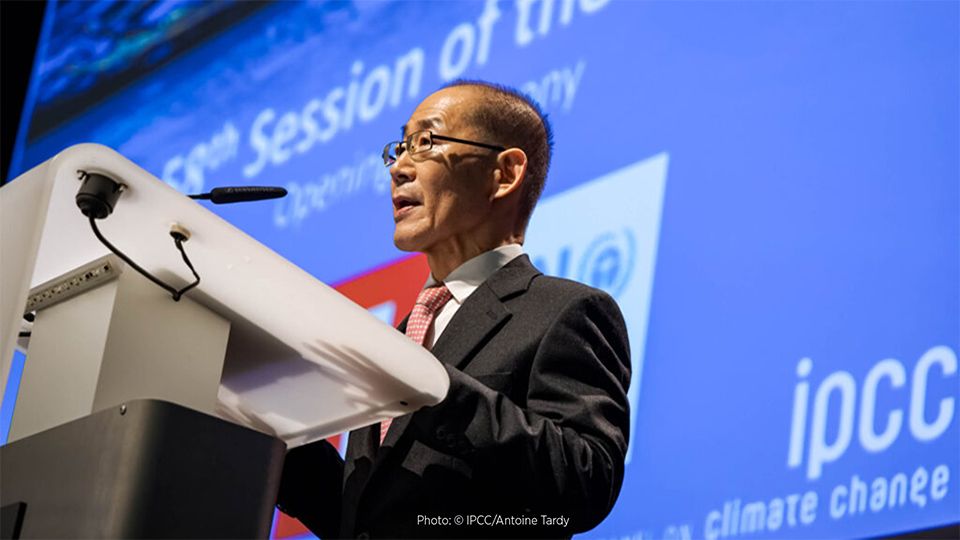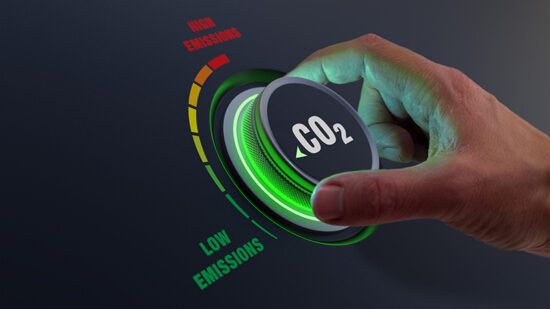The impact of climate change is happening “faster than we thought previously” and finance for both adaptation and mitigation is falling short, according to the latest report from the Intergovernmental Panel on Climate Change (IPCC).
However, it also highlighted many solutions are already available.
Today’s synthesis of the IPCC Sixth Assessment Report summarised the state of knowledge of climate change, its widespread impacts and risks, and climate change mitigation and adaptation. It integrated the main findings of the Sixth Assessment Report (AR6) based on contributions from the three working groups and the three special reports.
Five years on from the first report, the IPCC has today warned that continuing to emit CO2 will make it hard to stay within a 1.5 degree limits, and emissions must halve across all sectors in order to do so. It is likely this limit will be crossed, although that does not mean it cannot be reached again within the 2030 timeframe.
The report also found current global financial flows for adaptation, including from public and private finance sources, are insufficient and constrain implementation of adaptation options, especially in developing countries.
When it comes to mitigation, finance flows also fall short of the levels needed to meet climate goals across all sectors and regions, the report said, despite the majority of tracked climate finance going towards mitigation.
In 2018, public and privately mobilized private climate finance flows from developed to developing countries were below the collective goal under the UNFCCC and Paris Agreement to mobilize $100bn per year by 2020 in the context of meaningful mitigation action and transparency on implementation. Flows for adaptation and mitigation combined are still less than flows to fossil fuels.
“Finance, technology and international cooperation are critical enablers for accelerated climate action. If climate goals are to be achieved, both adaptation and mitigation financing would need to increase many-fold,” the report said.
Financing technology
Commenting on the report, professor Matthias Garschagen from Ludwig-Maximilians-Universität München, said: “In comparison to the last assessment, we know the climate impacts are actually happening faster than we thought previously.”
But he added: “The report is very important in that we no longer just characterise the problem, we focus very heavily on the solutions and what can be done with many tools available and new measures available.”
For example, the report points to several mitigation options already available, such as solar energy, wind energy, electrification of urban systems, urban green infrastructure, energy efficiency, demand-side management, improved forest- and crop/grassland management, and reduced food waste and loss.
These are technically viable, are becoming increasingly cost effective and are generally supported by the public. From 2010-2019 there have been sustained decreases in the unit costs of solar energy (85%), wind energy (55%), and lithium ion batteries (85%), and large increases in their deployment, e.g., >10x for solar and >100x for electric vehicles, varying widely across regions.
Garschagen added the same wetland that is good for flood retention is also good for carbon storage and heat mitigation, for instance. “These are the low hanging fruits, the ‘no-regrets solutions’, as we call them.”
The emphasis on available solutions represented notes of optimism for industry commentators such as Thomas Hohne-Sparborth, head of sustainability research and Dominic Tighe, senior sustainability analyst and Lombard Odier Investment Management, who said: “Aligning incentives and financing to the transition is essential if we are indeed to move from ‘climate procrastination to climate activation’.”
The IPCC pointed out there is “sufficient global capital to close the global investment gaps but there are barriers to redirect capital to climate action. Enhancing technology innovation systems is key to accelerate the widespread adoption of technologies and practices”.
IPCC chair Hoesung Lee (pictured) said: “Mainstreaming effective and equitable climate action will not only reduce losses and damages for nature and people, it will also provide wider benefits. This Synthesis Report underscores the urgency of taking more ambitious action and shows that, if we act now, we can still secure a liveable sustainable future for all.”








